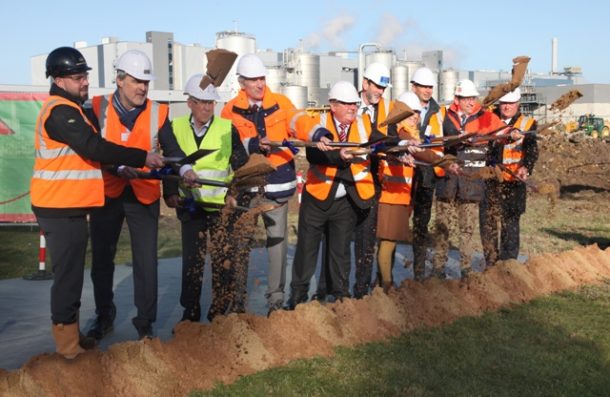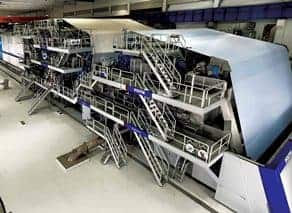A fibre separation plant is to be built by Palm Paper alongside its paper mill in King’s Lynn which recycles 500,000 tonnes of fibre per year into newsprint and associated grades.
The significant investment in the separation plant will see separately collected mixed papers targeted by the company for sorting these primarily into newspaper and magazines, which will be used within the mill’s process, and cardboard which will be despatched for recycling by UK or European board mills.
Palm Recycling, which is Palm Paper’s in-house supply business, will be sourcing some 200,000 tonnes per annum of material from local authorities and waste management companies for sorting.
The investment decision is seen as confirming Palm Paper’s commitment to its Norfolk mill as well as providing increased storage on site.
However, the decision is also seen as confirming that the mill needs to protect itself by ensuring that it receives sufficient newspapers at the right quality for recycling as it could lose out if more newspapers are sold within volumes of mixed paper for use by cardboard mills.

Palm Recycling, contractors and guests mark the recent start of work on the new fibre separation plant
Separate
Palm Recycling has emphasised that it is not building a materials recycling facility and will only handle fibre that is separately collected from glass, cans and plastics. “We are seeking to sort out soft mixed paper with a high deinking content, and separate out card for mills that want the material,” said Palm Recycling’s managing director, Gero Hempel.
He explained that Palm is looking to work with councils and contractors to ensure high quality recycling. And, Mr Hempel added. “Markets have changed with the developments in China, and Palm believes that this facility will provide a sustainable outlet for separately collected fibres.”
Benefits
Sarah Raymond, national account and development manager for Palm Recycling, said that while she accepted there are a lot of factors for local authorities to consider in adopting a fibre separate collection, “Palm does believe there are financial benefits in the separate collection of fibre by local authorities and waste management companies for further sorting”.
Ms Raymond said that she expected more local authorities to assess the option to move to dual stream collection, especially in the light of the recent Waste and Resources Strategy which indicates a desire for quality in the recycling stream and building long term sustainable outlets.
Mr Hempel explained: “We want to make a high quality of newspaper and the best way for us to receive good quality recycled feedstock is the separate collection of paper.”
Construction of the modular sorting plant has started with completion due in the third quarter of 2019. Capacity at start-up will be around 60,000 tonnes per annum moving towards 210,000 tonnes per annum at full operational level.
Equipment will be supplied by Bavaria Entsorgungstechnik while groundworks have been started by Mick George for contractor Brooks and Wood Ltd.
Germany
Palm has extensive experience in sorting mixed papers and King’s Lynn will draw on some of its parent company’s knowledge in Germany where an estimated two million tonnes of fibre sorting takes place because residents have a separately collected blue bin for paper.
Palm believes that on a broader European scale, the development at King’s Lynn will support the Circular Economy Package which has been adopted by the UK.
The post Palm to build fibre separation plant at King’s Lynn appeared first on letsrecycle.com.
Source: letsrecycle.com Waste Managment



